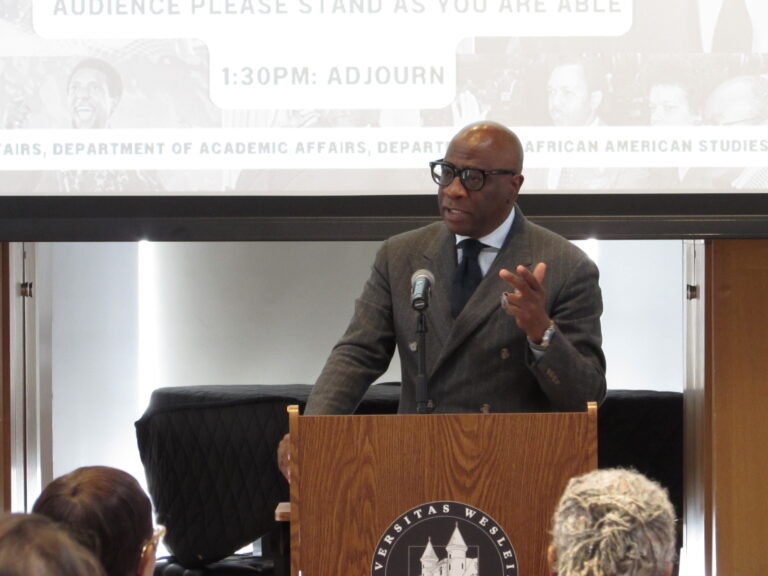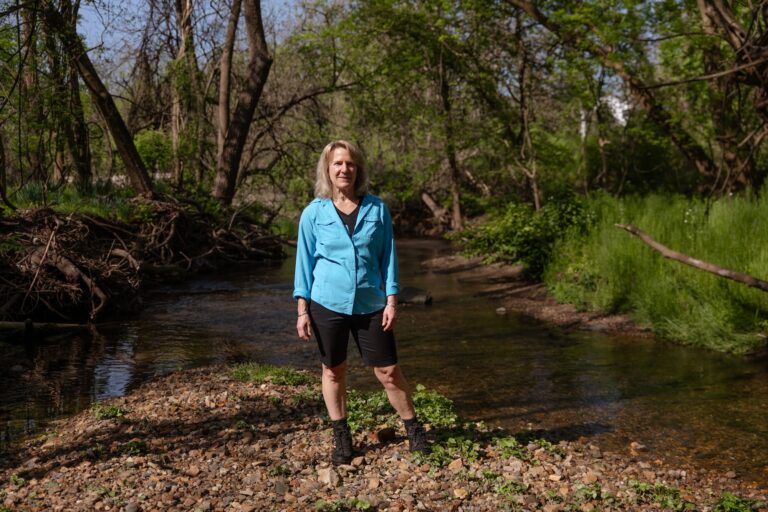University to Launch Human Rights Advocacy Minor in Fall 2022
The University will launch a Human Rights Advocacy minor, beginning in Fall 2022, through a partnership with the University Network for Human Rights (UNHR). The program, run by UNHR co-founders Visiting Professor of Public Policy Jim Cavallaro and Director of Environmental Justice Initiative & Senior Clinical Supervisor Ruhan Nagra, will offer students the opportunity to gain firsthand experience in human rights advocacy in conjunction with their interdisciplinary academic studies.
“The human rights advocacy minor is really exciting because [it’s] basically the only undergraduate opportunity in the country where students learn practical training in human rights advocacy,” Nagra wrote in an email to The Argus. “There’s a lot of universities that offer classes [in] human rights. But what makes this minor unique is that it’s the only program in the country where undergraduates are actually getting trained in how to do human rights, fact-finding documentation and advocacy.”
The minor will also include a residency component, in which 16 students from other institutions across the country will come to the University to study human rights advocacy at the undergraduate level. This component of the program is slated to begin in Fall 2023 and will be comprised of a fall and spring cohort.
“This program is unique,” Cavallaro wrote in an email to The Argus. “There is nothing like it at any college in the United States or elsewhere…. We have developed this program by bringing some of the best practitioners from the top law school human rights clinics—Harvard and Stanford Law Schools—to Wesleyan to provide better training in human rights advocacy than what is offered at those law schools. [Students] will have the opportunity now—as college students—to learn and engage in human rights advocacy at a level that has been available on to top law students until now.”
Cavallaro approached President Michael Roth ’78 a few years ago with a vision for the program, which was designed with liberal arts students in mind. Roth explained that the program will be different from other human rights programs, most of which are law-centered.
“Liberal arts students…don’t have the legal expertise,” Roth said. “They bring a lot of other dimensions to their thinking about human rights. That would be a real positive for the work itself on human rights.”
Cavallaro and Nagra have been working with the University since early 2020 to get the minor started. The process has involved senior administrators, students, professors, the Educational Policy Committee (EPC), and the entire faculty, who approved the minor and the In-Residence Program in May 2021.
Though the minor is new to the University, courses in the field of Human Rights are already well established.
Mansfield Freeman Professor of East Asian Studies and Director of the Fries Center for Global Studies Stephen Angle has previously taught the course “Human Rights Across Cultures,” which compares and analyzes Euro-American, Islamic, and Chinese human rights discourses. Angle joined the steering committee for the creation of the minor as co-chair and will be in charge of overseeing the minor itself.
“It’s a great opportunity to combine theory and practice—to explore, in a relatively controlled setting, the ways that things we learn in the classroom can really make a difference in the world,” Angle wrote in an email to The Argus. “Wesleyan has long seemed like a natural place to have classes and programming related to human rights, but for various reasons over the years there hasn’t been much. Thanks to the energy that the UNHR has brought to campus, we now have this new minor and, I am sure, related events and opportunities that will come along with it.”
Cavallaro has previously taught CSPL316: “Human Rights Advocacy” and CSPL328: “Advanced Human Rights Advocacy” as part of a pilot program before the launch of the minor. Students who apply for the minor will take “Human Rights Standards,” “Human Rights Advocacy,” “Advanced Human Rights Advocacy,” “Research and Writing for Advocacy,” and three additional courses related to human rights taught either by University faculty or UNHR staff.
Gabrielle Ouellette ’22 took both the CSPL classes taught by Cavallaro last year, and regrets not being able to declare the minor before receiving her degree in the spring.
“I can confidently say this is one of the best minors you can have at Wesleyan University because of its strength, its approach, and its overall versatility,” Ouellette wrote in an email to The Argus. “The skills you perfect through your coursework—how to advocate, how to write concisely and persuasively, how to pitch an idea, how to effectively problem-solve — will benefit you in any career you choose to pursue.”
One of the core components of the minor will be hands-on experience with real-world human rights situations. Nagra explained that students first participate in a simulation before working with a community directly affected by human rights abuses.
“They do fact finding and information gathering and documentation at the site of rights abuse, and then they work closely with the community to develop an advocacy strategy all under our close supervision,” Nagra wrote.
This simulation is already a component of “Human Rights Advocacy.” Visiting international student Lena Kruzycki explained how the simulation offered challenges but also opportunities to grow as a thinker.
“Sometimes, it is hard to stay calm and collected in circumstances that purposefully trigger internal conflicts, but at all times, we had to keep in mind that we were part of a bigger picture,” Kruzycki wrote in an email to The Argus. “It was a great reminder to stay focused on a productive way to evoke change and actually improve the lives of individuals who want to be helped…. I emerged from this program with a much clearer view on what I can do to evoke profound change.”
Ouelette emphasized that this part of her coursework allowed her to grow more confident when dealing with difficult problems, and expects that the minor will allow future students to do the same.
“The Human Rights Advocacy minor will equip you with the tools you need to be a strong advocate who is capable of thinking critically and confidently, not just about advocacy, but about the way our world functions,” Ouellette wrote. “You will be challenged to take what you learn in class discussions and put those skills into practice in real human rights advocacy projects, which is an incredible opportunity. Most undergraduates do not get the chance to engage in real advocacy with guidance and supervision from some of the best human rights advocates out there.”
Diego Olivieri ’24, a current student in Cavallaro’s Human Rights Advocacy course, highlighted that he believes students do need to pursue law degrees in order to have a future in the human rights field.
“Although Human Rights Advocacy involves holding state officials accountable through international and domestic courts, it needs fewer lawyers,” Olivieri wrote in an email to The Argus. “The field needs more philosophers, investigative journalists, film majors, English majors and anyone else who is looking to tell the story of people who have been silenced by state actors and powerful people.”
Olivieri intends to declare the minor next fall and offered advice to others interested in doing the same.
“Do not be afraid to let your emotions come through your writing in this course,” Olivieri wrote. “Know what you believe in, take a stand and write about the emotions that are invoked during the readings.”
Kruzycki added that the human rights course offerings will challenge previous understandings of human rights and expand the possibilities for students who want to advocate for justice.
“The minor does not only add to a better understanding of international relations and the important work of NGOs, the practical aspects of several projects challenge students to reexamine cost-benefit relations of our actions and construct plans to come out with a surplus for communities who are suffering,” Kruzycki wrote. “This minor is no theoretical feel-good-about-yourself experience but a necessary deep look into our own goals and how to reach them. If your aim is to really make the world a more just place, I believe the Human Rights Advocacy minor is the ideal place to start.”
Rachel Wachman can be reached at rwachman@wesleyan.edu.








I think this theme can be developed indefinitely Good writing. Studied somewhere or simply with experience has come?